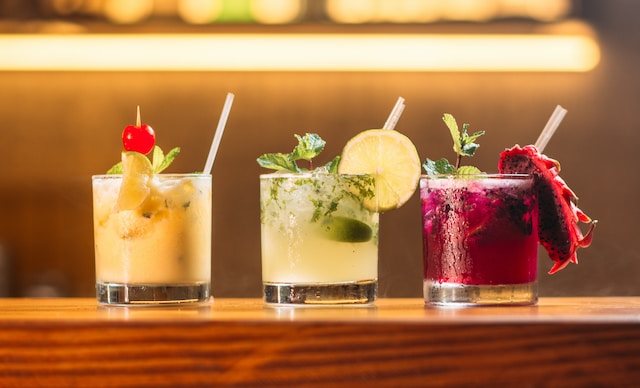Introduction: As the sun rises high in the sky, some individuals find themselves reaching for a cold beverage, ready to embark on a day of leisure or celebration. Day drinking, a practice that deviates from the traditional boundaries of nighttime indulgence, has long intrigued both researchers and enthusiasts alike. In this article, we delve into the science behind day drinking and explore why it feels different than nighttime drinking.
- Circadian Rhythms and Alcohol: One significant factor contributing to the distinct experience of day drinking lies in our body’s internal clock, known as the circadian rhythm. Our bodies are naturally attuned to the rising and setting of the sun, which influences our physiological and psychological responses. Day drinking disrupts this natural rhythm, leading to altered effects compared to consuming alcohol during the evening or nighttime.
- Early Alcohol Metabolism: The time at which alcohol is consumed can impact its metabolism in the body. Research suggests that drinking during the day may lead to faster alcohol absorption compared to nighttime drinking. The human body’s metabolic rate tends to be higher during the day, resulting in quicker processing and elimination of alcohol. Consequently, this accelerated metabolism can intensify the effects of alcohol, potentially leading to a more pronounced feeling of intoxication.
- Context and Perception: The social context surrounding day drinking plays a pivotal role in shaping our experience and perception of alcohol. Daytime activities often involve different social settings, such as outdoor gatherings, barbecues, or sporting events. These settings can evoke feelings of relaxation, leisure, and camaraderie, influencing our overall perception of the drinking experience. The combination of alcohol’s effects and the unique daytime ambiance can create a distinct sense of enjoyment and conviviality.
- Sunlight and Serotonin: Exposure to natural light triggers the release of serotonin, a neurotransmitter associated with mood regulation. Day drinking often involves basking in sunlight, which can enhance serotonin production. This increased serotonin, combined with the euphoric effects of alcohol, may intensify feelings of happiness and well-being. It’s important to note, however, that excessive alcohol consumption can disrupt the delicate balance of serotonin, leading to adverse effects on mood and mental health.
- Responsibilities and Consequences: While day drinking may seem appealing for its relaxed atmosphere and carefree ambiance, it is crucial to consider the potential consequences and responsibilities associated with alcohol consumption. Daytime intoxication can impair cognitive and motor functions, leading to accidents or impaired decision-making. Responsible drinking practices, such as moderation, alternating alcoholic beverages with non-alcoholic options, and staying hydrated, should always be emphasized to ensure the well-being of individuals engaging in day drinking.
Conclusion: Day drinking presents a unique experience that diverges from traditional nighttime alcohol consumption. Factors such as circadian rhythms, altered alcohol metabolism, social context, and sunlight exposure contribute to the distinct dynamics of daytime drinking. Understanding these factors can help individuals make informed decisions and approach day drinking responsibly. Ultimately, whether one chooses to indulge during the day or night, it is essential to prioritize personal well-being, moderation, and adhere to responsible drinking practices.












